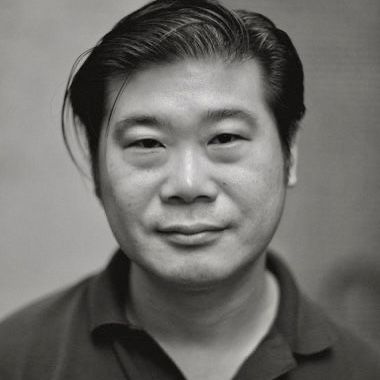Forward Progress
There were two parts to my decision to start Orbital in mid-2014. Of course, there was the intellectual rationale, which was fairly easy to resolve with the act of planning. However, there was also the challenge of having the willingness to take a leap, which was not. In broad strokes, the issue was clearly fear and uncertainty, but it's taken me awhile (now that I'm almost 6 years down the road) there were two parts to this.
First, there was the fear of owning the outcomes of my decisions. Undoubtedly, there would be mistakes. And this was largely tied to the fact that this would be brand new territory for me. Despite working in and around startups for most of my career, as well as teaching a class on how to launch, I was largely performing work that had been assigned to me, rather than making my own decisions and developing confidence and conviction around your own actions.
As an aside, this is why I cherished my college photography studies—they were the only training I'd had as an adult to learn how to explore with no guarantee of outcome, good or bad, which is critical to being a good entrepreneur.
And, resolving this issue wasn't a matter of "getting over" this fear so much as it was a matter of learning to simply accept that it was part of the package.
The more challenging part was the fear and uncertainty around walking my own path. Coming from the world of tech and startups, and especially having worked at a venture capital firm, it's expected that your next steps will be within a bounded set of known, understood options: working or founding a startup, or working at an investment firm or accelerator. There are some peripheral roles that are acceptable, too, like coaching and consulting.
None of this was particularly appealing to me, because they felt like mechanisms rather than starting points. I'd largely found that successful startups were either great at exploiting an opportunity in the market or were business model inventions that enabled them to sustain themselves. Or, that unsuccessful startups started with what they aspired to be–they built a shell of what they thought they should be, almost just the veneer rather than the core. And the successful ones, found the right nucleus–whether it was a market to exploit, a behavior that was regenerative, or an economic model that could sustainably fuel growth.
If you were mission-driven–meaning that you were motivated by achieving the economic, societal or culture change that you want vs. simply indiscriminately looking for growth opportunities to exploit–then this is where you had to start. Investigate what you want, first. Figure out later whether the vessel you are seeking to build is a startup, a fund, or something else entirely.
So, this brings me to the question of what was the challenge that I wanted to address? Occupy Wallstreet happened during my time at USV, as did Piketty's book on inequality, and it was during that time that I saw the growth of the new tech incumbents, and was introduced to Carlota Perez' work on the theory of technological revolutions. All of this put together made it clear that we were headed towards a whole world of hurt: The Great Dislocation. And, the obvious question was: "what can be done about this?" You can't stop progress. You can't put the genie back in the proverbial bottle. But, perhaps you could buffer change.
And so the question I had for myself was two-fold: what could be done, and what was the role I could play in this, if any?
And so, given that, it was hard for me to get excited about any of the startups that were in the market at the time. It was also hard for me to get excited about continuing up the professional career ladder to do what would've been expected of me otherwise. This change would be harder to ignore, and I was stuck, unsure of what to do next because working on a problem like this didn't map to what was normative, nor did it map to anything I had experience in. That was the nature of my uncertainty and fear. And it made it hard to move forward at all.
What did help was attending the 2013 NYC premiere of Grace Lee's documentary American Revolutionary, which focused on activist, philosopher, educator Grace Lee Boggs.
Here's a 2 minute trailer of the film:
https://www.youtube.com/watch?v=w2-e8eERg_c
What I found compelling about Grace Lee Boggs were a number of ideas:
- that we are the change that we needed–that we couldn't (and shouldn't) wait around for someone to save us;
- that protesting against the injustice that we see today was necessary but not sufficient. If we put all of our energy into protest, then what is left for building the world we want to see?
- a reframing of the word "revolutionary", that this act in itself of building for the community around you was in itself revolutionary.
- and that you make your path by walking
If you haven't gone down the YouTube rabbit hole of listening to Grace Lee Boggs speak, it's a fascinating experience. There's a wealth of lessons in her lived experience, and in seeing how she has grown and evolved over the years.
And for me, that helped me get over the idea that I was about to embark on a path that would effectively take me out of the venture industrial complex, an industry where I'd spent a career building up experience, connections, and leverage, only to explore a problem space which wasn't guaranteed to result in anything that would be easy to explain to others.
